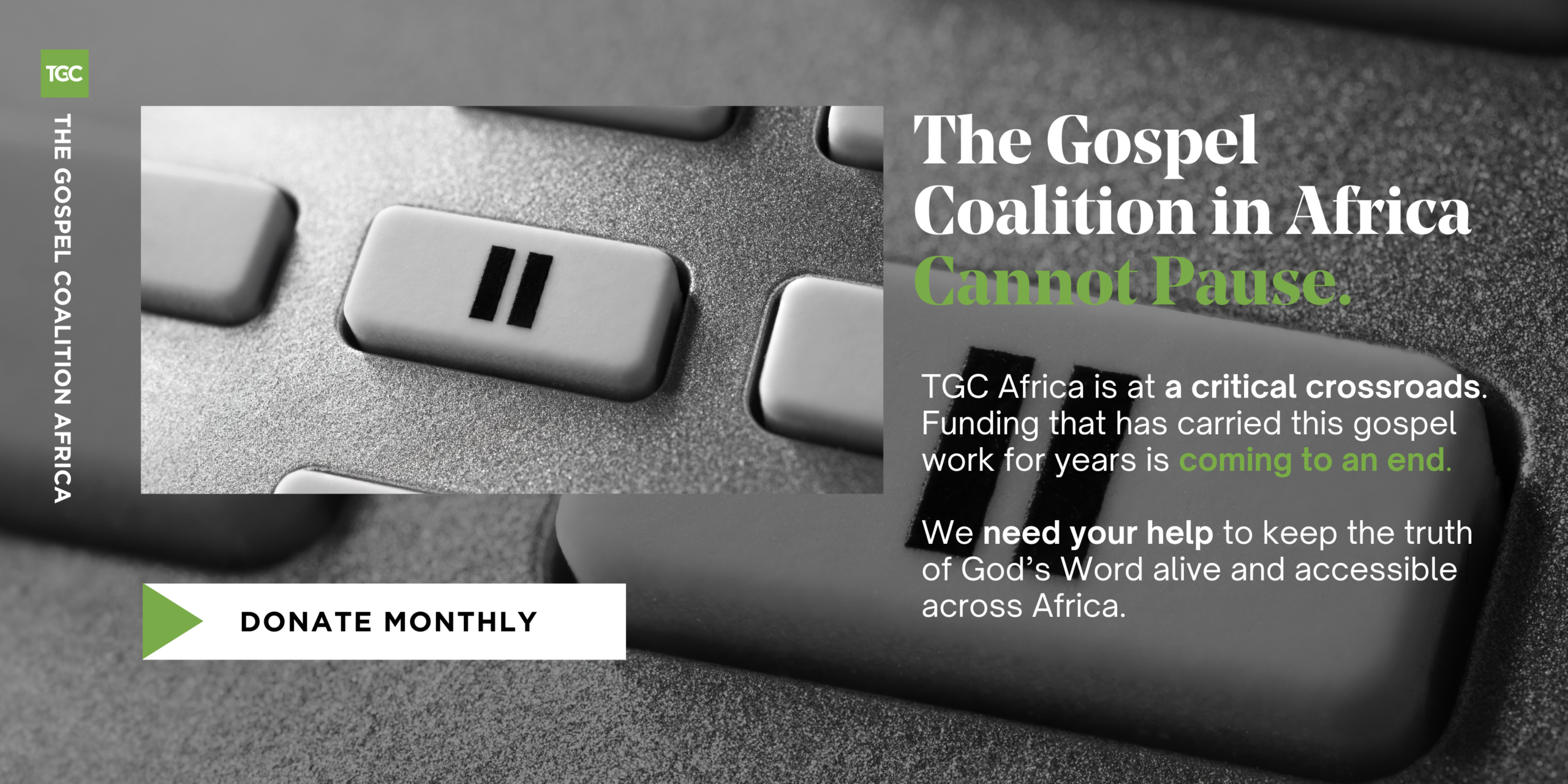On January 13th, the Church of Jesus Christ of Latter-day Saints (LDS) announced a two-week “open house” in April for its newly completed Nairobi Kenya Temple. This public-relations event represents a significant milestone in the African expansion of Mormonism. For Nairobi serves as the headquarters for the LDS Church’s Africa Central Area, overseeing missionary efforts in 29 countries, from Ethiopia to Zimbabwe.
The body of Christ must be concerned with Mormonism’s core beliefs and efforts to convert evangelicals.
As Mormonism gains momentum and acceptance, it’s crucial that biblical Christians understand its errors and strategies. So this two-part series will provide an overview of key LDS beliefs and practices, equipping believers to engage in meaningful discussions and defend the true gospel. In this article, we’ll show you why the body of Christ must be concerned with the cult’s core beliefs and efforts to convert evangelicals. The second article examines Mormon doctrines about God and salvation, as well as offering practical ways to evangelistically engage Mormon friends and neighbours.
Image-Crafting and Expansion
This open day is part of a well-orchestrated public relations strategy. Over the last seven years, the LDS Church moved away from using the familiar name Mormon and now insists on being called either by its full name or The Church of Jesus Christ. The church’s official website states that it is “the restoration of Christ’s ancient Church…led by a living prophet today.” This claim asserts that true Christianity was lost for centuries, until it was restored through the American prophet Joseph Smith in 1820.
Behind its outward message lie theological claims that radically deviate from the Bible.
The Nairobi temple, with its 1000 square metres of floor space on 78 acres, will be showcased as a place of peace and divine connection. However, the public will not be told the full history or theological underpinnings of the LDS. Behind its outward message lies a system of secretive rituals and theological claims that radically deviate from the Bible.
Accelerating Growth
Even though it was first organised in 1830, the Mormon Church didn’t begin serious missionary work in Africa until 1978. That’s when the sect suddenly ended over a century of racial discrimination, in which members of African descent were denied its priesthood and participation in key temple rites.
It is approaching the million-member mark on the continent.
Now it’s catching up—attracting converts with an image of strong family values and upward mobility, combined with various humanitarian efforts. Such initiatives appear benevolent. But they serve a deeper purpose: establishing credibility and fostering goodwill to facilitate conversions. And it’s working. The Church of Jesus Christ of Latter-day Saints has experienced significant growth in Africa and is approaching the million-member mark on the continent.
A Counterfeit Christianity
The LDS Church teaches that “the fullness of the gospel” was restored through Joseph Smith. This means that all other Christian denominations are “apostate,” lacking the true and complete gospel.
But when LDS missionaries approach evangelicals, they do not immediately challenge core Christian beliefs. Instead, they gradually introduce Mormon distinctives—like added scriptures (Book of Mormon, Doctrine and Covenants, Pearl of Great Price), modern-day prophets, and temple “blessings”—to draw people away from biblical faith.
Temples: A Subtle Deception
The Mormon Church says that a temple is “the most sacred place on earth.” Their “open house” is a high-visibility recruiting event, designed to attract local media attention and arouse public interest. However, it deliberately conceals key details of the church’s essential—and changing— practices surrounding the afterlife and salvation.
They deliberately conceal key details of the church’s essential practices surrounding the afterlife and salvation.
After the temple is formally dedicated, only worthy members holding a “temple recommend” will be able to enter and engage in baptism for the dead or the secret endowment ritual (with its washings and anointings, oaths and handshakes, and sacred garments). What’s more, non-members cannot attend “celestial marriage” ceremonies in the temple, and Mormons who drink coffee or tea are denied temple privileges.
Ways That Christians Can Respond
First, Christians must be discerning. As the LDS Church increases its conversion efforts, believers must understand its grave theological errors and be prepared to respond biblically.
Second, pastors and lay believers can’t afford to be passive as the LDS Church takes unsuspecting Christians captive. Scripture warns of those who preach another Jesus and a “different gospel” (2 Corinthians 11:4, Galatians 1:8–9). It is our responsibility to stand for the truth.
Here are three key actions believers should take.
1. Equip Yourself With the Truth
Christians must study the fundamental differences between Christianity and Mormonism to avoid deception. Keep in mind, Mormonism redefines dozens of common Christian words and expressions. So be ready to clarify important points. Scripture calls believers to rightly handle the word of truth (2 Timothy 2:15) and examine teachings in light of scripture (Acts 17:11). Understanding LDS evangelistic strategies is also crucial so that we can respond wisely when approached (Colossians 2:8).
Mormonism redefines dozens of common Christian words and expressions.
A key area of concern is the nature of God and the sufficiency of Christ’s atonement. The Bible makes it clear that there is only one true God (Isaiah 43:10) and that Jesus, the eternal Word, is fully divine (John 1:1-3). Moreover, Christ’s sacrifice was once for all, making additional ordinances unnecessary for salvation (Hebrews 10:10–14).
2. Engage With Love
Many Mormons are sincere individuals who try to live morally upright lives and genuinely seek God. Our response should be marked by grace and biblical clarity (1 Peter 3:15; Colossians 4:6). Engaging in conversations with gentleness and respect opens doors for meaningful discussions.
Our response should be marked by grace and biblical clarity.
When speaking with LDS missionaries or friends, we must emphasise the sufficiency of Christ and salvation by grace alone. The Bible clearly teaches that we are saved by grace through faith, not by works (Ephesians 2:8-9). Justification comes through faith in Jesus Christ alone, apart from the law or any additional requirements (Galatians 2:16).
3. Strengthen the Local Church Against Deception
To protect believers from being drawn into LDS teachings, pastors must prioritise sound doctrine (Titus 1:9). In an age when many seek teachings that suit their own desires, church leaders must remain steadfast in biblical truth (2 Timothy 4:3-4). Discipleship is therefore essential, particularly for new and vulnerable believers. Jesus commanded his followers to make disciples and teach them to observe his commands (Matthew 28:19–20). The gospel is exclusive—Christ alone is the way to the Father (John 14:6).
Mormonism is not merely another Christian denomination.
Church leaders should also be proactive in addressing the rise of Mormonism in their communities. Paul warned that false teachers would arise and lead people astray, making it essential for pastors and elders to guard the flock (Acts 20:28–30). The church must be equipped to contend for the faith against those who distort the gospel (Jude 3-4).
Mormonism is not merely another Christian denomination. It is a theological system that distorts the gospel and leads people away from biblical truth. As the LDS Church intensifies its outreach in East Africa, believers must remain watchful, discerning, and equipped to uphold the faith once delivered to the saints (Jude 3-4).
 DON’T HAVE PAYPAL TO SET UP A MONTHLY DONATION? If you would like to donate via Payfast – a secure payment gateway available to donors both inside and outside of Africa – please click here.
DON’T HAVE PAYPAL TO SET UP A MONTHLY DONATION? If you would like to donate via Payfast – a secure payment gateway available to donors both inside and outside of Africa – please click here.













